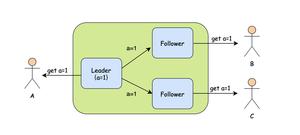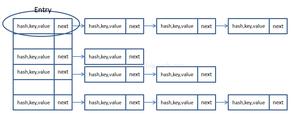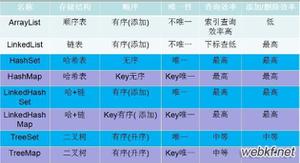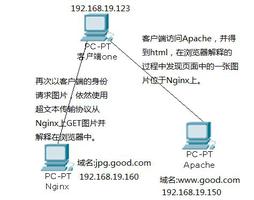当达到HashMap或HashSet最大容量时会发生什么?
几分钟前,我回答了一个问题,询问“ Java中HashMap的最大可能大小 ”。正如我一直阅读的那样, 因此,我认为它的大小没有硬性限制,因此做出了相应的回答。(同样适用于HashSet。)
但有人纠正我说,既然 HashMap中的方法返回一个 ,还有 就是
它的大小有限制。完全正确的一点。我只是尝试在本地进行测试,但是失败了,我需要8GB以上的内存才能在HashMap中插入2147483483647个以上的整数,而我没有。
我的问题是:
- 当我们尝试在HashMap / HashSet中插入2,147,483,647 + 1个元素时会发生什么?
- 是否抛出错误?
- 如果是,哪个错误?如果不是,那么HashMap / HashSet,它已经存在的元素和新元素会发生什么?
如果有人可以访问拥有16GB内存的计算机,那么您可以实际尝试一下。:)
回答:
阵列的基础容量必须是2的幂(限制为2 ^ 30)。达到此大小时,有效地忽略了负载因子,并且阵列停止增长。
此时,冲突率增加。
由于hashCode()仅具有32位,因此无论如何都不能将其增大得太大。
/** * Rehashes the contents of this map into a new array with a
* larger capacity. This method is called automatically when the
* number of keys in this map reaches its threshold.
*
* If current capacity is MAXIMUM_CAPACITY, this method does not
* resize the map, but sets threshold to Integer.MAX_VALUE.
* This has the effect of preventing future calls.
*
* @param newCapacity the new capacity, MUST be a power of two;
* must be greater than current capacity unless current
* capacity is MAXIMUM_CAPACITY (in which case value
* is irrelevant).
*/
void resize(int newCapacity) {
Entry[] oldTable = table;
int oldCapacity = oldTable.length;
if (oldCapacity == MAXIMUM_CAPACITY) {
threshold = Integer.MAX_VALUE;
return;
}
Entry[] newTable = new Entry[newCapacity];
transfer(newTable);
table = newTable;
threshold = (int)(newCapacity * loadFactor);
}
当大小超过Integer.MAX_VALUE时,它将溢出。
void addEntry(int hash, K key, V value, int bucketIndex) {Entry<K,V> e = table[bucketIndex];
table[bucketIndex] = new Entry<K,V>(hash, key, value, e);
if (size++ >= threshold)
resize(2 * table.length);
}
以上是 当达到HashMap或HashSet最大容量时会发生什么? 的全部内容, 来源链接: utcz.com/qa/422183.html









